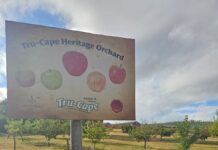Words such as “veggie biltong”, “plant-based meatballs” and “vegan nuggets” are now banned because they do not meet the definition of “processed meat” under the country’s Regulation No.R.1283.
Yesterday in a letter addressed to “All processors, importers and retailers of meat analogues”, the DALRRD instructed that meat analogues “must not use the product names prescribed and reserved for processed meat products”.
The letter also instructs the Food Safety Agency (Pty) Ltd, the assignee designated for the inspection of processed meat products, to seize and remove any plant-based products using names that traditionally refer to animal-based products in terms of section 8 (“Seizures”) of the Agricultural Product Standards Act 199 of 1990 (“the APS Act”).
The names of plant-based meat alternative products cited in the document include:
- Vegan Veggie Biltong
- Mushroom Biltong
- Plant-based Meatballs
- Vegan Nuggets
- Vegan BBQ ribs
- Plant-based bratwurst
- Chorizo and red pepper vegetarian sausages
- Plant-based chicken-style strips
What is seemingly an interpretation of existing regulations, is in fact an extreme interpretation and is, essentially, creating new legislation. The measure also flies in the face of the government’s own plans to introduce legislation to tackle climate change.
In the National Climate Change Response White Paper, the South African government admits that “land-based human activities, such as forest clearing and unsustainable agricultural practices, are not only increasing Green House Gas (GHG) emissions from these sources, but are also reducing the earth’s natural ability to absorb GHGs”. The White Paper also states that “[t]he evidence that current global warming is due to human activities associated with industrialisation and modern agriculture is overwhelming”.
Yet, now, this very government’s Department of Agriculture, Land Reform and Rural Development is aiming to disrupt a prosperous economic sector that could help South Africans mitigate their carbon footprint.
What the White Paper fails to mention is that the farming and eating of animals is a leading contributor to the global climate crisis, responsible for about 20% of GHGs emissions, and that switching to a plant-based diet could reduce an individual’s food-related emissions by up to 50%.
The latest Intergovernmental Panel on Climate Change (IPCC) report also confirms that the world needs to shift more to a plant-based diet to keep within the 1.5 Celsius global warming limit set by the 2015 Paris Agreement.
“This is a huge step backwards in the Government’s fight against climate change,” Donovan Will, Country Director at ProVeg South Africa said. “Regulation such as this is exactly what we don’t need when the world’s scientists are telling us we urgently need to reduce our meat consumption to help brake dangerous global warming.”
But it is not just plant-based meat alternatives that have come under fire. Following a supposed meeting between DALRRD and the Food Safety Agency, another letter was sent, this time to Woolworths, one of the largest supermarket chains in the country. The supermarket giant was instructed that the plant-based egg substitute Just Egg could not be sold as “eggs” as it does not hail from domestic fowl.
In this letter, the Food Safety Agency has given Woolworths a week (7 days) to rectify the non-conformance. If the supermarket giant does not act, the Food Safety Agency will seize all “Just Egg” products on Woolworths shelves.
According to the letter, the intention of the Just Egg product found at Woolworths is “to substitute or imitate eggs as defined in regulation R.345 dated 20 March 2020, and the vegan product thus competes directly with eggs as defined in the said regulations”. The letter further claims that the use of the name/claim “eggs” in the descriptions “just egg” and “4 folded plant eggs” is regarded as “misleading”.
Through their actions, the egg industry seemingly wants to protect its market share rather than the customers it claims are being misled by transparent and honest packaging and marketing. In fact, banning the use of meat or egg-related terms might cause more confusion for customers who have grown to like or even need these alternatives.
“The regulation disrespects consumers,” Will said. “There is no evidence to show that people are confused by meaty names for plant-based foods. In fact, evidence from Australia, Europe and the US prove they are not confused.”
The meat and egg industries are essentially claiming a monopoly on the term “meat” and “egg” and all other related terminology, where the alternatives should be able to use these terms because they effectively mimic the taste, texture and use of the products they replace.
As long as products are clearly labelled as “meat-free”, “vegan”, or “vegetarian”, the terminology is not misleading. They are marketed as alternatives to meat and do not claim to be meat from an animal source.
A similar restriction on the naming of plant-based products referred to as the “veggie burger ban” was proposed by the meat industry in Europe in 2019 but was defeated in the European Parliament in 2020 after a sustained campaign by ProVeg International and many other groups.
Although similar attacks on the plant-based dairy industry have not come to light yet, ProVeg South Africa is sure that it will soon follow, subjecting thousands of lactose-intolerant South Africans to even more confusion and disruption and further endorsing an industry that is poisonous to the environment.
“We really urge the government to overturn this regulation. At a time when countries are seeking ways to tackle climate change, we must do all we can to encourage a vibrant and innovative plant-based sector,” Will said.








